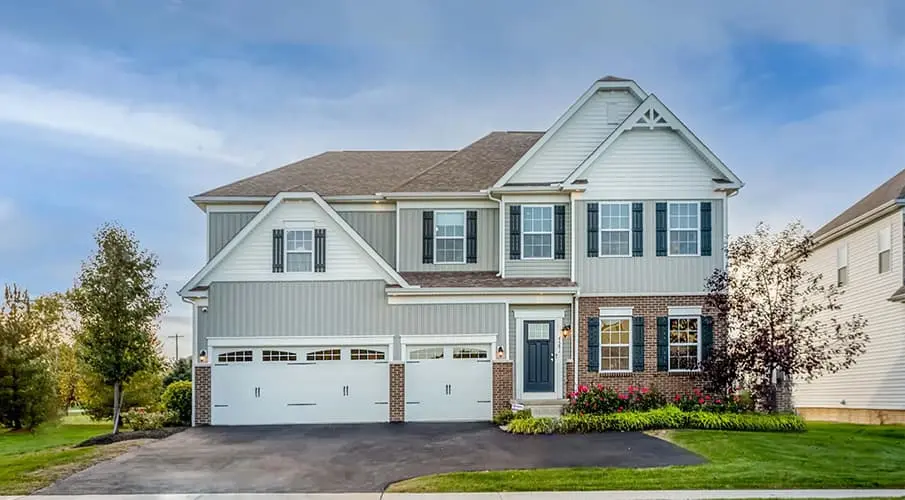
As you currently know, there are multiple methods to own residential or commercial property. In property investing, you'll normally own a residential or commercial property under an LLC as a business. But every now and then, you might discover yourself in a circumstance where you inherit or buy a residential or commercial property that becomes part of a tenancy in typical plan, which is a different monster totally.

A tenancy in common contract includes shared rights to a single residential or commercial property with others, each holding various percentages of ownership interest. Here, we'll explore this approach to owning residential or commercial property, describing its benefits, possible drawbacks, and how it compares to other kinds of co-ownership.

You'll likewise get an understanding of the legal implications and tax factors to consider connected to this kind of ownership structure. Whether you're a genuine estate investor, property manager, or just curious about tenancy in typical, this article will provide a useful overview for you!
Tenancy in typical is when two or more people own various ownership interests in a single residential or commercial property. This implies that the co-owners do not necessarily own equal parts of the residential or commercial property, and their shares can be of different sizes.
For example, if three parties buy a residential or commercial property as renters in typical, a single person might own 50% of the residential or commercial property, while the other two each own 25%. Everyone determines their ownership portion by contributing to the purchase cost or by reaching an arrangement among the co-owners.
Benefits of occupancy in typical
What makes occupancy in typical an appealing option? Here are some of the benefits:
Adaptable ownership stakes
One of the most considerable advantages of occupancy in typical is how flexible it is with ownership shares. Each co-tenant can own various portions of the residential or commercial property, which suggests they can invest based upon how much money they have or what they wish to achieve.
Simple sale or transfer of portions
Tenancy in typical also makes it simple to offer or transfer your share of the residential or commercial property. Unlike some other types of shared ownership, you don't need authorization from the other owners to do this. You can handle your ownership share however you please.
Pass your shares to beneficiaries

In a tenancy in typical, your share of the residential or commercial property can go to your beneficiaries after you pass away. It does not automatically move to the surviving owners, but you can leave it to anyone you designate in your will or pass it on to your legal beneficiaries under estate law.
Drawbacks of occupancy in common
Even though tenancy in typical has its benefits, just like every form of real estate investing, there are some drawbacks to consider. These include:
Absence of survivorship advantages
Since tenancy in typical does not immediately move an owner's share to the enduring owners upon death, complications can develop. This is particularly real if the brand-new heirs have prepare for the residential or commercial property that is various from those of the remaining owners.
Potential for forced residential or commercial property sales
When one owner wishes to leave their share of an occupancy in typical, they can initiate a partition action. This is a request for a court to step in and decide how to handle the residential or commercial property.
The court may divide the residential or commercial property amongst the owners if possible, or if division isn't practical, it might buy the residential or commercial property sold and the earnings divided among owners according to their particular shares.
The partition action procedure makes certain that the departing owner can exit the plan, however it may require the staying owners to either buy out the share or sell the residential or commercial property.
Equal obligation
In this typical ownership plan, each owner's monetary duty for expenses like maintenance, insurance coverage, and energies usually represents their share of ownership. Owners can tailor their plans to choose how these expenditures are shared.
Disagreements can happen if an owner stops working to fulfill their financial dedications, resulting in conflicts among the co-owners.
Different methods to own residential or commercial property
There are other manner ins which individuals can share ownership of a residential or commercial property, such as:
Tenancy in severalty
This is when simply one person or one corporation owns a residential or commercial property all by themselves. They have complete control over it, and they do not have the issues that can come with having co-owners. This is the most basic form of residential or commercial property ownership.
Joint occupancy
In a joint tenancy, co-owners hold equivalent shares of the residential or commercial property and take advantage of the right of survivorship. This means that if one joint renter dies, their share automatically passes to the remaining occupants.
All co-owners must acquire their shares at the exact same time using the same deed or title.
Joint ownership benefits couples or member of the family who desire to keep the residential or commercial property in the household if one owner dies. However, no owner can sell or move their share without the others' arrangement.
Tenancy by whole
This form of residential or commercial property ownership is readily available to married couples in some states and uses functions similar to joint tenancy but with additional securities. Specifically, it secures the residential or commercial property from being targeted by lenders for debts owed by only one spouse.
Ownership of the residential or commercial property as a single legal entity means that lenders can not require the sale of the residential or commercial property to settle private financial obligations. Additionally, one spouse can not offer or move their interest without the approval of the other, guaranteeing joint decision-making.
How can you end a tenancy in typical?
Tenancy in common is not a long-term plan, and there are a number of routes for leaving this type of shared ownership, consisting of:
Agreement: Among the simplest methods is through a common arrangement among all co-owners. The co-owners can choose together to divide the residential or commercial property or the money from selling it based upon how much each individual owns.
Death: If a co-owner dies, the other co-owners may choose to purchase the share from the individual who inherited it or share the residential or commercial property with them.
Division through residential or commercial property distribution: Sometimes, you can divide into different parts, with each owner getting a piece that matches their share.
Division through residential or commercial property sale: Any owner can start selling the residential or commercial property. The co-owners then divide the profits from the sale based on their particular ownership share quantities.
Sale of shares: You can sell part of the residential or commercial property to someone else, providing all the rights and duties that come with it.
How tax works for an occupancy in common
Taxes are an essential consideration with occupancy in typical ownership. Here's how it works for residential or commercial property and earnings taxes:
Individual taxpayer status: The IRS treats each owner as their own taxpayer, so residential or commercial property and earnings taxes are dealt with individually. Each owner receives their own residential or commercial property tax bill.
Tax distribution: The legal plan determines how to divide these taxes, normally based upon each individual's ownership interest in the residential or commercial property. For circumstances, if you own 30% of the residential or commercial property, you pay 30% of the residential or commercial property tax.
Flexible arrangements: You can structure each ownership stake in a range of ways. One owner might pay all the residential or commercial property tax, while others cover things like insurance or upkeep. However, you can just subtract the part of the residential or commercial property tax that matches your ownership share and how much you paid.
Income taxes: Each owner reports and pays taxes on their share of rental income and costs based upon the amount of residential or commercial property they own.
To make sure all your bases are covered come tax time, we suggest checking out working with an accountant for your rental residential or commercial property.
Exploring occupancy in common: Is it right for you?
Tenancy in typical deals a special technique to residential or commercial property ownership, supplying versatility in dividing ownership percentages and handing down shares. However, navigating this plan needs cautious consideration. In any co-ownership scenario, open interaction and clear agreements are critical. Understanding each party's rights and obligations can pave the way for a favorable experience.
So, is tenancy in typical the best choice for you? The answer depends on your individual circumstances - your monetary standing, long-term investment objectives, and most importantly, your capability to maintain consistency with your co-owners with time.
Tenancy in common can be a productive investment strategy, however it's not without its intricacies. By weighing the benefits and drawbacks and making sure everyone is on the same page, you can make an educated decision that aligns with your goals.
Tenants in common FAQs
What is the distinction in between tenants by the totality and renters in common?
Tenants by the whole is for couples who own residential or commercial property together. In this arrangement, they have equal rights, and if one partner passes away, the other will inherit the entire residential or commercial property. They can not offer the residential or commercial property without the approval of their partner.

Tenants in typical, on the other hand, are when 2 or more individuals who jointly own a residential or commercial property. They can offer or gift their share without requiring approval from the other owners.
Which is better: joint tenants or renters in typical?
Generally speaking, joint tenancy is normally better for co-ownership. If one owner dies, their share instantly goes to the others. With renters in typical, when an owner passes away, their share goes to their heirs, which can make managing the residential or commercial property more difficult.
What is the distinction in between rights of survivorship and renters in common?
Rights of survivorship suggests that if one owner passes away, the other owner's share of the residential or commercial property will go to the other owner(s). This takes place in joint occupancies however not in tenancies in typical.









